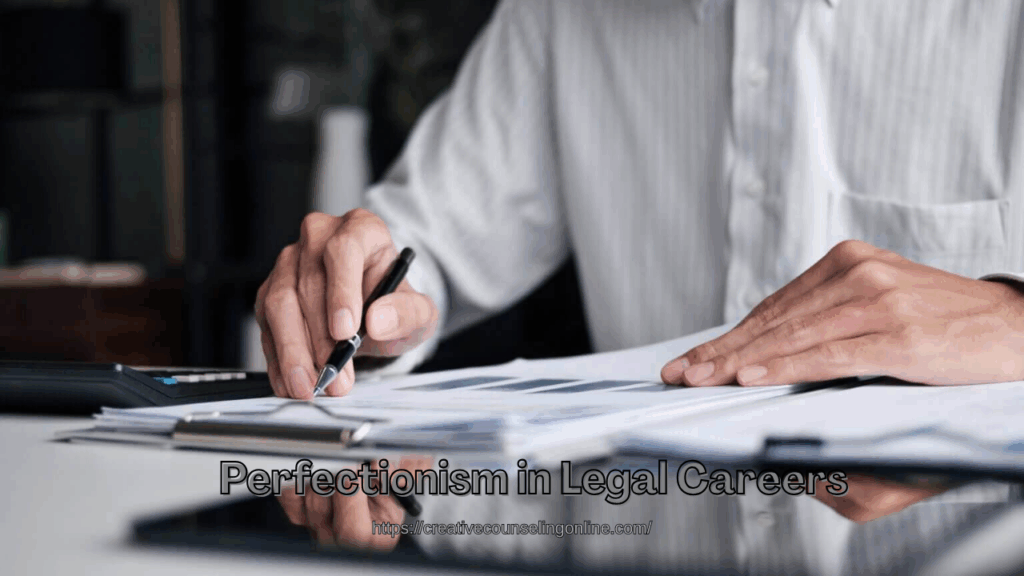
In the demanding world of law, success often comes with a price. Many attorneys pride themselves on perfection and relentless presence in the office, but these silent expectations can create deep and lasting stress. Perfectionism drives professionals to set unattainable standards, while presenteeism—showing up to work despite exhaustion, illness, or emotional strain—prevents real recovery. At CriminalAttorneysAndLawyers.org we recognize that these invisible barriers not only affect performance but also fuel cycles of burnout, depression, and even addiction. Addressing them is essential for long-term health and well-being.
Understanding Perfectionism in Legal Careers
The Pursuit of Flawlessness
Perfectionism is often praised in legal settings, where precision and detail can determine the outcome of a case. Yet the constant drive for flawlessness leaves many attorneys trapped in self-criticism and fear of failure. This unrelenting pressure can lead to anxiety, sleepless nights, and chronic stress.
When Perfectionism Turns Harmful
What begins as dedication to excellence often shifts into unhealthy patterns. Attorneys may become overly critical, struggle to delegate tasks, or avoid new opportunities out of fear of making mistakes. Left unchecked, this mindset mirrors the cycle of addiction: pushing harder to silence inner discomfort while ultimately causing more harm.
Presenteeism: Showing Up but Burning Out
The Silent Strain of Never Stepping Back
Presenteeism occurs when professionals continue to show up at work despite physical or emotional challenges. In law firms, where billable hours and client demands are constant, stepping away can feel impossible. However, working through illness or mental fatigue often worsens outcomes and delays true healing.
The Hidden Costs
Unlike absenteeism, which is easy to measure, presenteeism quietly chips away at health, relationships, and productivity. Attorneys may feel disconnected, emotionally drained, and less effective in client advocacy. The inability to rest or recover also increases the likelihood of turning to substances for relief, echoing the patterns seen in addiction recovery clients.
The Connection Between Legal Stress and Addiction
Perfectionism and presenteeism both create cycles of pressure without release. When the body and mind cannot recharge, attorneys may seek escape through alcohol, stimulants, or prescription medications. Just as with clients entering recovery, what begins as an attempt to cope quickly becomes a destructive habit. Recognizing this connection is critical for early intervention and long-term wellness.
Pathways to Healing and Resilience
Individualized Care
At CriminalAttorneysAndLawyers.org we believe that no two recovery journeys are alike. Attorneys facing stress, burnout, or addiction need individualized plans that reflect their unique challenges and goals.
Inpatient and Outpatient Options
Some professionals benefit from the immersive structure of inpatient programs, while others prefer the flexibility of outpatient care. Both approaches provide evidence-based treatment and allow individuals to step back from harmful cycles.
Holistic and Faith-Based Support
Recovery and wellness extend beyond clinical treatment. Incorporating faith, mindfulness, nutrition, and physical activity restores balance and strengthens resilience. These holistic approaches are powerful tools for addressing the root causes of perfectionism and presenteeism.
Practical Steps for Attorneys
Redefine Success
Shifting the focus from perfection to progress reduces unnecessary pressure and allows for healthier achievements.
Prioritize Rest
Making rest and recovery non-negotiable ensures sustainable performance and prevents presenteeism from becoming the norm.
Seek Professional Help
Therapy, counseling, and recovery programs provide structured guidance for managing stress, breaking harmful cycles, and building healthier coping strategies.
Conclusion
Perfectionism and presenteeism may appear to signal dedication, but in reality they are invisible barriers that erode mental health and increase vulnerability to addiction. Attorneys deserve more than constant strain. They deserve balance, resilience, and a path to healing.
At CriminalAttorneysAndLawyers.org we offer compassionate, faith-based, and holistic treatment designed to help individuals reclaim their strength and purpose. If you or someone you care about is struggling with stress, addiction, or emotional exhaustion, reach out today. The first step toward healing begins with asking for help.
